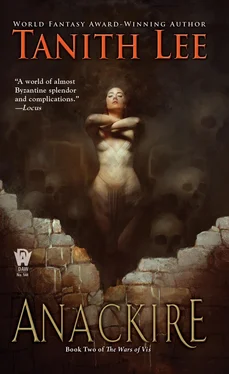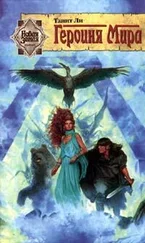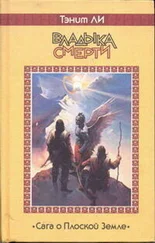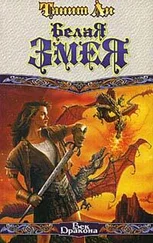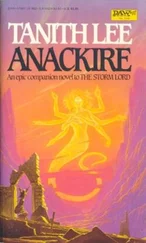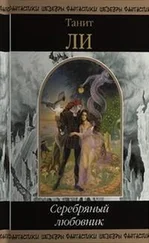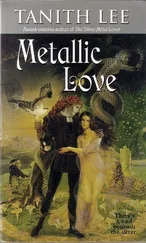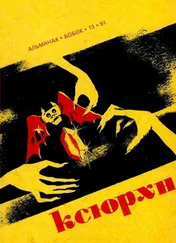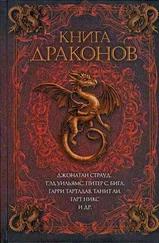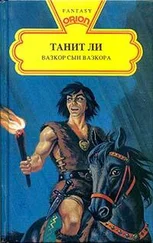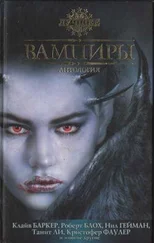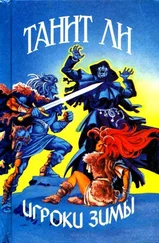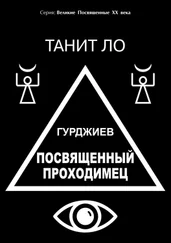The walk was of the same duration as it had always been. But coming out at the crown of the island, seeing the husk of the temple, memory itself pierced the side. Events had happened here. Now everything was gone, only the walls, the trees fighting back to bud and leaf, the scope of the sea and the sky beyond, indifferent and unassociable.
The Lowlanders burned their corpses for this very reason, to expunge each physical life, its worth already integrated by the soul, and only the soul persisting. It was hard on those who remained behind.
Rarnammon, he himself one that remained in the wake of death, saw between the phantom trees, another. He had not been assured he would discover her here. Raldanash’s mind had hinted something, of her presence, the rekindling of his flagging strength through Ankabek and through the ingenuous medium of this woman.
She was seated on the ground, clad in one of the temple robes, dusty black as the burned trees. The blood-red hair matched with the sprays of new leaves. A strange picture.
He went closer, moving silently, not wanting to alarm her. He had recognized the stance as that of meditation. At ten yards’ distance he paused. Her face was tilted slightly up into the sunlight, and her eyes were partly open. It was Ulis Anet, much as she had been. But then, too, it was Val Nardia. For a moment he missed the tore with the pearls Kesarh’s sister had always worn at court. Before his impressions sorted themselves.
Her eyes widened abruptly, and he knew she saw him. Although maybe where he stood, there were other persons, less corporeal.
“Ulis Anet Am Xarabiss,” he said carefully. “Do you remember me?”
“Rarnammon,” she said. Because she rendered him the full name as now it was, it was obvious her awareness had been heightened. Obvious, in other less decided ways. She stared at him for some time before she said, “I’m no priestess, my lord. My being here is an accident. You’ll find me rather odd. I’ve stayed alone some while. Atonement, self-examination. What do you want with me?”
“Perhaps nothing,” he said.
She came gracefully to her feet, and the light sifted through her hair, between her fingers when she spread her hands.
“When I first looked and saw you,” she said, “I saw Kesarh. The darkness—and then—Raldanash. Your eyes, do you understand? But you’re like him. Like them both.” She wept then, slowly and thoughtfully, as if without grief. He stood and watched her. In a space, she touched her palms to her cheeks and the tears and the weeping were gone. “Let me show you a marvel of the island,” she said. She moved away toward the headland, and he went after her. Her beauty, which he had never properly seen before, flowed from her like her shadow between the stems of the trees.
West of the temple, the burned groves gave way to burned oaks, and the sea spread under them, a long stretch down. Among the grasses stood a small stone Anackire, rough layman’s work. He wondered who had put it there.
Ulis Anet walked to the edge of the rock.
“It’s curious,” she said. “I never asked the spot and I might have been misled. But the sun’s westering. This is the hour when it occurs.”
“What is it?” he asked her gently. He did not think her without reason, but he was half afraid to go near her, that his arm or sleeve might brush against her, or his voice. As if she might disintegrate. Or as if some hurt would spring from proximity.
But, “There,” she said, and pointed to the deep water below.
And suddenly something dazzled, a spear of amber light starting up from the sea.
They looked at it, each of them transfixed. And then the dazzle flickered out.
“They flung the statue down from these rocks,” she said. “Anackire. Could it be some ornament. Her hair—or a jewel—”
“The Free Zakorians took Her eyes,” he said, “but one of the Leopard ships went down. The current, maybe, brought it back—”
They gazed at the water, disbelieving now that it had ever revealed anything.
After a while, he offered her the food and wine he had brought.
They sat by the oaks above the sea to share this picnic. He recollected, he thought, Kesarh and Val Nardia sitting here. There was a timelessness and a lack of urgency, but under all, the anomalous sense of change, nervous and unanswerable.
Once, a golden snake spilled through the grass. The serpents of the goddess had survived, and now the island was theirs.
The man and woman spoke, ordinarily, of extraordinary matters.
Shadows extended in bars across the ocean, on the rocks. The west flushed; the east flushed as if in reflection, anticipating the Star.
“You don’t mean to stay here,” he said. “You hadn’t made up your mind to be an acolyte or a hermitess?”
“I considered it. But you must advise me. You were one with the great web of Power. A god.”
“No,” he said.
“At least,” she said, “for a night and a day. The hem of that fire passed over the island. I’m a witness. You were a god. You tell me then, my lord, where I should direct my steps, how I should spend my life. You know he died because of me.”
“Kesarh died because of Kesarh.”
“I put my guilt and terror aside. Ankabek taught me to do that. But not how to live out the rest. Ankabek says only: Wait.”
“Come to Dorthar, then. She speaks more loudly and to greater purpose.”
“Never to me.”
The sun stepped upon the tide. The world swam in scarlet lights and shades. The Star crushed out a rose along the eastern horizon.
“Ulis,” he said, “this conversation about gods—if this were some brothel in Istris I’d cringe with shame. I’ve had what I wanted, and it was never a woman. And now this is a ruin and a rock with burned trees on it. A damnable couch. And I want you.”
Her face was wholly blank, and then the blankness dashed away in laughter.
“The Storm Lord apologizes to his handmaiden for an uncomfortable bed?”
“And for his lack of knowledge, which fails to team with his years.”
“Zastis,” she said. Her voice was very low. “It’s Zastis. And every moment of it I was alone here, until now.”
He found her mouth then, through the sinking of the sun. It was sweet and unknown country that the sunset made.
Somewhere in the hills above Koramvis, the Thaddrian watched the stars of dusk come out, and the Red Moon among them, and then the last Star of all, redder than the cookfire on the stones.
Zastis disturbed the Thaddrian, but he was used to it and to setting his body aside.
He had made the fire on the stones to add normalcy, but it did not. The lake was far off, the mountains loomed. This hilltop seemed bizarrely out of the world while being totally within the world. All around, the Amanackire, the tawny and the icy-pale, sat meditating, some through the formula of prayer.
The Thaddrian thought of the miracle they had wrought. Then stopped thinking of it. The mystery was over. He was homesick for his temple on the plain, the fat High Priest and his wine jars—and his surreptitious ladies, at this season. For the useful scrolls and cartographies, the rituals, so empty but so pretty. He was thirsty for mediocre things. He had forgotten, having grown irritable with it, his love for mankind.
“Soon,” she said.
He glanced up and saw Ashni standing across the fire.
Her smile was so lovely, so redolent of everything that did no harm yet was limitless—sky, stars, light.
“You’re going then, madam,” he said. It was rhetorical, requiring no reply, getting none.
Gradually all their eyes, even those weird pallid eyes, were coming to her.
She told them, succinctly, with no words, that now she would leave them.
None of her Lowlanders objected. They bore it, pridefully, the Chosen Race, the Children of the Gods. He felt the loneliness creep down like wolves from the mountains. Did no other feel the loneliness, too?
Читать дальше
